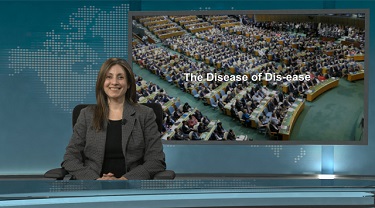Ask the average person, and they will say that global risks are rising. Businesses seem to agree. That’s always a concern, but it’s particularly alarming today. Ten years of economic growth between us and the Great Recession would normally have lowered global risks by this point. With things going in the opposite direction, there seems to be a randomness to them, and in the chaos, leaders are being elected and acting on platforms that are further increasing the risk. What’s going on?
On the international trade front, the obvious big risks are Brexit, the U.S.-China tariff war, rejection and renegotiation of key trade deals, existential threats to the WTO process and the more insidious non-tariff barriers that can and do surface in an increasingly protectionist environment. Add to these issues the tendency for protectionism to escalate, the U.S. retreat from defending and funding global institutions, threatened and real military conflicts and financial market volatility, and one can get an uncomfortable sense that the system is unravelling. This is what we can see on the surface; are there key causes?
There is no lack of proposed answers. It’s a well-worn list: from general discontent attributed to a global distribution that is increasingly skewed to a privileged few, to a new global corporate concentration that might not have been tolerated a generation or two ago, to the advent of social media, which gives individuals a global reach for their messages and other forms of communication that enable instant mass rallying on contentious and divisive issues, to increasing digitization and the technical displacement of workers, to the perverse economic growth dynamics of aging-population economies, to electoral volatility due to voters yo-yoing from one ideological wing to another, to electoral polarization, and probably a host of other possibilities.
On these topics, there’s no lack of daily discussion. But are there root causes of the basic discontent? Perhaps. An interesting and critical observation about populism is that for the most part, it’s ubiquitous. Normally there are pockets of discontent, but at the moment, most countries on the planet seem to be dealing with some strain of the disease. That points to a common cause, and as an economist, my first default is insufficient global growth. That, in turn, has led to the view that globalization has amplified each phase of the business cycle, and the current one—the sluggish, pre-recovery phase—is the one we are least prepared to deal with. It has pushed millions of potential workers to the side, and over time this has swelled the ranks of the discontented enough to cause general disruption.
A second root element is the distortion caused by our novel ultra-loose monetary policy and the early attempts to rein it back in. Key economies, mostly in the emerging world, are being hit with financial market volatility, and it’s arguable that the effects have only just begun to appear. In short, quantitative tightening and interest rate tightening have a long journey to “normal”.
A third possible complication is the relative lack of fiscal room to ameliorate prolonged weak growth. Much of the fiscal firepower was used up in the recession’s immediate aftermath, leaving most governments, in developed and emerging countries alike, little capacity to offset the consequences of economic conditions.
Given the magnitude, pervasiveness and duration of the situation, it seems clear that there are few fast-fixes available: current risks will persist. As such, EDC’s economics team will continue to anticipate, monitor and analyze global economic and political risks. Our latest issue of the Country Risk Quarterly has just been released, summing up our analysis of up to 200 countries around the world, together with the hot risk issues of greatest concern to Canadian exporters. EDC makes this available, along with our financing and insurance solutions, to mitigate global risks as much as possible.


















